What makes a work a “classic?” More specifically, what make a work of science fiction or fantasy a “classic?”
I attended MystiCon in Roanoke, Virginia this past weekend and had an opportunity to ask myself these questions (the reason being that I was assigned to participate in a panel called “Modern SF Classics”). The con programmers who put together the panel defined “modern” as a work having been published in 1980 or later. In pulling together a list, I decided not to include any books that had been published within the last ten years (I also limited myself to novels, since including short fiction would stretch the discussion far beyond what could be covered in an hour). I reasoned that part of being a “classic” is having stood the test of time; a number of books which have been published since 2001 may end up entering the canon of essential science fiction and fantasy works, but it is simply too early to tell. This delineation on my part put a number of currently prominent writers’ works off my list, including all books by China Mieville, Cory Doctorow, John Scalzi, and Charles Stross (so if you are fans of these folks, check back with me in another decade or so for my updated list).
The con programmers’ stipulation of 1980 as a starting point seemed arbitrary, until I had compiled the contents of my list and realized who wasn’t on it. 1980, it turns out, represented a generational shift in the ranks of those science fiction and fantasy writers who were turning out career-defining and genre-defining works. My list doesn’t contain any post-1979 works by any writers who came to prominence during the “magazine years” of science fiction, those decades when the most vital and essential science fiction was to be found in the pages of periodicals such as Astounding, Galaxy, Worlds of If, or The Magazine of Fantasy and Science Fiction rather than hardback or paperback books (or online). My list doesn’t include any books, for example, by Isaac Asimov, Robert Heinlein, Arthur C. Clarke, Frederik Pohl (who came the closest to being included on the list, having published several of his classic novels in the late 1970s), Robert Sheckley, or Robert Silverberg. All of their most essential books were published prior to 1980. In contrast, all of the writers included on my list have made their bones primarily with hardback or paperback originals, rather than works published in monthly or bimonthly periodicals.
So, returning to my original question, what is it that makes a work of science fiction or fantasy a classic? I mentioned staying power, the test of time. Apart from a work’s popularity at the time of its original publication, has it managed to fairly consistently stay in print? Do readers continue to seek it out, even a decade or more after its first appearance? Has it been cited by critics as a noteworthy book or one which has been influential in the field’s subsequent development? Do current writers have the work in mind as they write their own books, either consciously or subconsciously, amplifying the earlier work’s themes and innovations, or reacting against them? (One of my fellow panelists suggested another criterion for defining a work as a classic, which is whether non-geeks recognize it when it is mentioned in casual conversation; but I think this tends to favor books which have the fortune or misfortune of being adapted into motion pictures or television series, more a marker of notoriety – or luck — than of quality or influence.)
Science fiction and fantasy, more so than other types of literature, are the product of long-distance conversations which may occur over timespans of decades or even centuries. Many works in the field may be considered to be responses to earlier works. Let’s take the subject matter of robots and artificial intelligence as an example. Mary Wollstonecraft Shelley tossed the ball into the air with her Frankenstein: or, The Modern Prometheus (1818). Carel Kapek returned her serve a century later, in 1920, with his play R.U.R. (Rossum’s Universal Robots). Then the ball was most ably fielded by Issac Asimov with his Robot stories, collected as I, Robot (1950). More recent parries and volleys have included those by Brian Aldiss (“Super-Toys Last All Summer Long,” 1969) and David Gerrold (When Harlie Was One, 1972), to list just two of dozens of notable examples.
So another aspect of judging a work of science fiction or fantasy a classic is how ably and how significantly it has added to the ongoing conversation which sustains these genres over time.
I selected my choices for various reasons. Some I included because they promulgated a new, vital sub-genre of works (such as Neuromancer — cyberpunk – and The Anubis Gates — steampunk – and The Time Ships — the New Space Opera), others because they added fresh perspectives to established sub-genres and headed them in new directions (such as When Gravity Fails and Cryptonomicon). Some I listed because they introduced new concepts into the science fictional discussion (such as Blood Music did with nanotechnology). Others got the nod because they have been consistent best-sellers over long periods of time, proving their enduring attraction to successive generations of readers (such as Ender’s Game and Brin’s “Uplift War” series), or because their craft has been judged to be of such high quality that they have served as models and aspirations for writers who have read them (such as Little, Big and The Book of the New Sun quartet).
Without further ado, here is my list of modern science fiction and fantasy classics, listed in reverse order of publication.
Cryptonomicon by Neal Stephenson (1999)
The Sparrow by Mary Doria Russell (1996)
The Time Ships by Stephen Baxter (1995)
Doomsday Book by Connie Willis (1992)
Hyperion by Dan Simmons (1989)
When Gravity Fails by George Alec Effinger (1986)
Ender’s Game by Orson Scott Card (1985)
Blood Music by Greg Bear (1985)
Neuromancer by William Gibson (1984)
Startide Rising by David Brin (1983)
The Anubis Gates by Tim Powers (1983)
Little, Big by John Crowley (1981)
The Book of the New Sun by Gene Wolfe (4 volumes, 1980-83)
Are there any glaring omissions on my list? Please feel free to let me know!

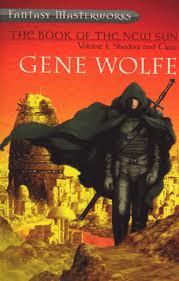
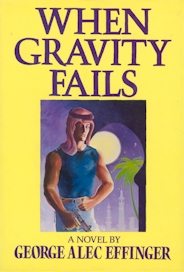
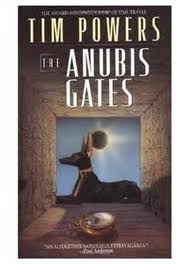
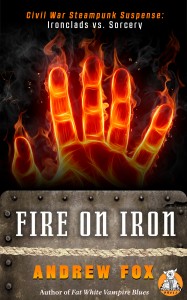
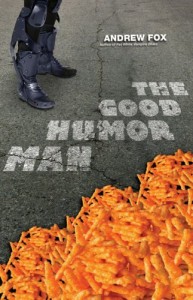
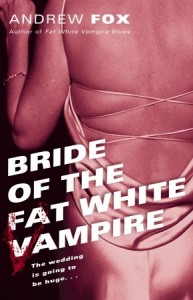
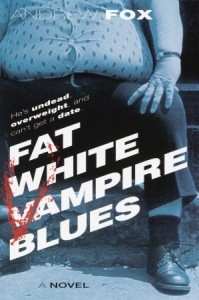
I didn’t read any of the books on your list, sticking to more familiar science fiction territory. The Big Three writers got their starts in the 1930’s and 1940’s with the bulk of their great works complete before 1980, but they still wrote up to their deaths.
Although 2001: A Space Odyssey and Rendezvous with Rama were both pre-1980, all of Clarke’s follow ups were in your time frame. The Rama series (chiefly written by Gentry Lee with input from Clarke) really didn’t add too much to the original, but 2010, 2061 and 3001 all added significant social commentary. If there is one thing Clarke does with his stories, he explains how society will change with new scientific discoveries.
No Asimov? He continued his Robot and Foundation series’ in the 1980, with Foundation’s Edge earning a Hugo! Does the 1990 novelization of his 1941 story Nightfall (with Silverberg) deserve to be on the list?
Some critics panned much of Heinlein’s late works, but I rather enjoyed them. The Number of the Beast took the Lazarus Long story line to a whole different level and set up future novels nicely. Job: A Comedy of Justice was both fun to read and took an interesting look at diverging parallel universes, something theorized in string theory. The TV series Sliders (not Heinlein) seems to apply the same basic premise. The Cat Who Walks Through Walls and To Sail Beyond the Sunset complete the Lazarus Long stories.
So I would add for sure:
Number of the Beast (1980)
Job: A Comedy of Justice (1984)
Foundation’s Edge (1982)
3001: The Final Odyssey (1997)
Rama II (1989)
Nathan, I would respectfully disagree. I don’t think that any of the post-1980 books by SF’s “Big Three” (Heinlein, Asimov, and Clarke) would fit my definition of “classic.” Not to say that those books aren’t enjoyable and well-done, but I don’t think that they add much that is new to the science fiction conversation (very few sequels to significant original works do, by the way). Each of those authors certainly wrote works that are part of the enduring SF canon of classics, but those books were written prior to 1980.
I stated early that the majority of their works were early, yet they still had a lot to offer with new stories in their “elder statemen” days. At least you didn’t offer L. Ron Hubbard’s Battlefield Earth (1982) or the subsequent Mission Decology.
Nathan, I’m not disputing you there. But I’ll stand by my opinion that not all “good, enjoyable” books are necessarily “classic” books. There’s more to becoming a classic than being a good read.
Anything by Asimov!
Roxanne, please see my response to Nathan below. The good Doctor’s post-1980 books may be enjoyable and fun, but they haven’t had nearly the impact on the science fiction field of his true classic works, all written well before 1980 — I, ROBOT, The Foundation Trilogy, and THE CAVES OF STEEL.
[…] Andrew Fox’s blog captures another list of modern SF classics compiled by a panel at […]
Kudos for choosing Wolfe’s Book of the New Sun. It’s the pinnacle all writers should be striving for. I can’t argue with any of your choices, although there are two I have not read yet, The Time Ships and The Sparrow. I’m surprised you didn’t mention Robinson’s Mars Trilogy.
There are a few others I would have on my personal list (Aldiss’ Helliconia Trilogy, Michael Bishop’s Ancient of Days, Gerrold’s Chtorr series, Varley’s Steel Beach) although I am willing to admit they have not proved as popular, critically praised or influential as most of the ones you have named.
Galen, thanks much for writing in. I actually did consider putting the “Mars Trilogy” on my list, but I left it off for one reason… a late science fiction author, award-winning himself, whom I respected very much as a critic of the field, referred to the “Mars Trilogy” as “the most boring classic science fiction trilogy ever written” and as “a trilogy people like to say they’ve ready, when in reality they didn’t get through the second book.” Of course, your response may vary (and most probably does).
Obviously I disagree about the Mars trilogy being boring. The characters alone make that one of my favorites.
I thought of another title, one of the best first novels – Maureen F. McHugh’s China Mountain Zhang.
I can think of a few glaring omissions. Robinson’s Mars trilogy seems to meet all the criteria. A Fire Upon The Deep and A Deepness in the Sky from Vernor Vinge would also make my list. Since we’re including fantasy Philip Pullman’s His Dark Materials deserves a spot despite the very average movie of the first book, and at least some of Stephen King’s Dark Tower stories are in the time frame. The 1980 cutoff really narrows the list though. If the 1970’s were included my list would be much much larger.
David, you’re right in that I should’ve included one of the Vinges (which do you think is the superior book?). About the “Mars Trilogy,” please see my comment to Galen below. Thanks for writing!
If I had to choose only one of the Vinge books I’d pick A Fire Upon The Deep. Both are terrific books but ‘Fire’ I’d say is more of a classic because it was first and it still seems to generate more discussion. For the same reasons I was a little surprised you chose Cryptonomicon over Snow Crash from Neal Stephenson. Both are great books, as is The Diamond Age which has also been mentioned, but Cryptonomicon is not what I’d call SF. Snow Crash has the non-geek recognition you mentioned, plus it was earlier than the other two. It was also hailed as the 90’s Neuromancer, so even though the other two are arguably better books, I’d still say Snow Crash is more of a classic.
David, thanks for getting back to me concerning the two Vinge books, as well as stating your opinion on the Stephenson novels. All of this feedback will be a lot of help to me for the next time I speak on a similar panel (or when a friend asks for recommendations of recent SF). I appreciate it! Please continue coming back to visit my site from time to time.
Andrew,
A good solid list. Certainly a good springboard for discussion.
I do agree with your assessment of the of the works of the “Big Three” during the 80s.
It’s late … so maybe more later.
Michael, thanks for visiting and for writing in.
Some of my favorites ever are on your list. I respectfully submit Michael Swanwick’s “The Iron Dragon’s Daughter” and Ellen Kushner’s “Swordspoint”.
Fernando, I’ve heard very, very good things about Michael Swanwick’s book. That was an oversight on my part. I’m not familiar with Ellen Kushsner’s, though, so I’ll need to check that out. Thanks for writing.
I’d call “Stations of the Tide” a classic before I would “Iron Dragon’s Daughter,” though I enjoyed the latter as well.
Hello Andrew,
You have put together a thoughtful and well reasoned list. The only quibble I might raise is having Crowley’s “Little, Big”, which strictly speaking I would classify as fantasy – your title does say Science Fiction. Your argument, and response, to not include the ‘big three’ is spot on.
As for other’s suggestions, I probably would have included “Red Mars’, the ‘boredom’ aspect notwithstanding. The Hellconia trilogy I found more boring, and simply not as good as Robinson’s. The Pullman, King, Swamwick, and Kushner would be filed under the ‘fantasy’ umbrella (see above).
As far as my suggestions, I agree with David that both Vinge novels would definitely have to be included, although if forced to choose I would go with “A Deepness In the Sky”. I would also include “Speaker For the Dead” by O.C. Card. I thought it was a devastating rejoinder to “Ender’s Game”, and worthy of inclusion. I think Neal Stephenson’s “Diamond Age” should make the cut. Although flawed at the end, the book overflowed with idea’s, and will stand the test of time.
The only other novel in contention might be “Forever Peace” which is worthwhile on it’s own merits. Haldeman differentiated it enough from “Forever War” that it warrant’s consideration. Anyway, I enjoyed your list thoroughly.
Stephen
Andrew,
Upon rereading your column, you do mention fantasy, so I’ll grant you “Little, Big”. Swanwick’s “Station’s of the Tide” was superior to “Iron Dragon’s Daughter”.
Stephen, thanks so much for all of your interesting suggestions and responses. I hope you’ll continue to visit my site from time to time (I’m in the middle of a series of posts on the classic Pohl-Kornbluth partnership of the 1950s, for example).
This is a solid list, but one omission sticks out for me: “Schismatrix” by Bruce Sterling.
This is a topic of much interest to me (though only the sf side of the equation) so it would be easy for me to try to torque it into *my* modern science fiction classics, so I’ll just say that you should have something by Sterling here, and that you could do worse than choose “Schismatrix,” which I consider a fountainhead of much that has come after. If you have not read it, I recommend it highly.
Robert, thanks for writing in. I’m actually more acquainted with Bruce Sterling’s nonfiction and opinion writing than his fiction, so I’m glad to see that you singled out one of his novels for special mention.
Maybe THE REMAKING OF SIGMUND FREUD? (Ballantine 1985)
Self-promotingly,
Barry N. Malzberg
Oh, Barry, my dear, dear friend… you have succeeded in embarassing the shit out of me. I love so many of your books… and I’ve been saving THE REMAKING OF SIGMUND FREUD for a future reading. Just like one doesn’t want to devour an entire wedding cake in one sitting, I’ve been spacing your books out, saving some for years to come. Have not read it, have not. Thus, could not in good conscience put it on my list (as I would’ve put BEYOND APOLLO and HEROVIT’S WORLD on a list of classic works of the 1970s).
I think the list is rather solid with only a few glaring omissions. Please note that I’m leaving out any novels already recommended. First, I think Margaret Atwood’s ‘Handmaid’s Tale’ should definitely be included. I can’t think of any other novel that is as highly praised both inside and outside the SF community. It is also as relevant as ever considering some of the GOP candidates are using it as a blueprint for their terms in office.
The second major omission is Lois McMaster Bujold’s ‘Vorkosigan’ Saga. Not only has the series won numerous Hugo and Nebula awards, but is often argued to be one of the greatest pieces of Space Opera ever written. Because the series largely deals with moral issues it makes it appealing to a wide audience and enables the series to age well. If you are worried that the series doesn’t fit your guidelines because the latest book was released in 2010 then ‘Barrayar’, ‘Mirror Dance’, or ‘Memory’ would each make a fine addition to your list.
Third, I feel Alastair Reynolds’ ‘Revelation Space’ (2000) should also be included. It is already widely considered a modern classic and is rather representative of the British New Space Opera (as is ‘The Time Ships’) which has been an important and influential movement in SF for the last 20 years.
These are the three I think are “glaring omissions” in your list, but I’d like to suggest a few more novels that meet the criteria you stated. I’m listing them in order of my view of importance.
George R. R. Martin’s ‘Game of Thrones’
Gregory Benford’s ‘Timescape’
Octavia Butler’s ‘Parable Series’
C. J. Cherryh’s ‘Downbelow Station’ or ‘Cyteen’
Nancy Kress’ ‘Beggars in Spain’
Greg Egan’s ‘Permutation City’
Iain M. Banks’ ‘Culture Series’ (or just ‘Player of Games)
Joe Haldeman’s ‘Forever Peace’
Paul McAuley’s ‘Fairyland’
Emma Bull’s ‘Bone Dance’
[…] SF Classics This again. A guy picks his modern classics. 1980 is kind of arbitrary in that Sterling's first novel came out in '77, tying Varley. […]
I agree with all on the list and also that the Clarkes and Asimovs best and most influential work came well before 1980.
I would add only the following two (the Dick I believe is a “glaring omission”):
VALIS, Philip K. Dick, 1981
Gun with Occasional Music, Jonathan Lethem, 1994
The Lethem for me personally was very influential in that it got me reading (new) science fiction again.
Paul, thanks for writing. I’ll agree that GUN WITH OCCASIONAL MUSIC was clever and entertaining, but “classic?” Has it been influential in the SF field? Did it head off in any bold new directions or introduce new elements of the fantastical vocabulary to the literature? I’m a little less skeptical of your inclusion of the Dick book, but I still think Dick’s late works were too idiosyncratic and focused on the author’s personal obsessions to be considered classics of the SF field.
This is probably opening a whole can of worms, but . . .
I think the influence “Gun” had was that it really helped usher in the era of works blending literary and genre writing – literary writers shifting into science fiction and vice versa. Someone like Michael Chabon being one of the best and most prominent.
I know, I know. There are endless arguments over the validty of labeling writing in the first place. But I think the book and Lethem have had an influence on a certain segment of writers and readers.
Yes, Dick’s late stuff was uneven, but the first half of VALIS is amazing and it alone gives it classic status. Divine Invasion – I was just barely able to finish reading.
Paul, thanks so much for your continuing interest. Regarding GUN WITH OCCASIONAL MUSIC, what Lethem did wasn’t so much mash up literary fiction with SF as mash up pulp noir detective fiction with SF. Later on, he mashed up Western fiction (actually, the scenario of the John Wayne film THE SEARCHERS) with SF in his novel GIRL IN LANDSCAPE. He gets credit for being a pioneer in “cross-stream” fiction, but he was beaten to the punch by a couple of decades by writers such as Philip Jose Farmer, Norman Spinrad, Michael Moorcock, and others. However, to his credit, Lethem has been much better than those guys at public relations and self-promotion (skills which count for an awful lot in the world of letters).
My shortlist from which to choose the classics 1980-2002 or so would include:
The Shadow of the Torturer, Gene Wolfe (which you had, and the New Sun books are perhaps the most important sf works during this period)
Engine Summer, John Crowley
Timescape, Gregory Benford
Riddley Walker, Russell Hoban
Blood Music, Greg Bear
When Gravity Fails, George Alec Effinger
Startide Rising, David Brin
Stars In My Pocket Like Grains of Sand, Samuel R. Delany (sadly, Delany’s last — but one hopes not final — sf novel)
Schismatrix, Bruce Sterling
The Handmaid’s Tale, Margaret Atwood
Life During Wartime, Lucius Shepard
Ægypt, John Crowley (vastly under-appreciated, though perhaps fantasy)
Cyteen, C. J. Cherryh
The Difference Engine, William Gibson & Bruce Sterling (arguably invented steampunk, for better or worse)
Stations of the Tide, Michael Swanwick (at his most sf-ally baroque)
Doomsday Book, Connie Willis
China Mountain Zhang, Maureen F. McHugh (she is a very much under-rated novelist)
Snow Crash, Neal Stephenson (perhaps as important as early Gibson)
The Star Fraction, Ken MacLeod
Vurt, Jeff Noon
A Fire Upon the Deep, Vernor Vinge
Elvissey, Jack Womack
Permutation City, Greg Egan
Mysterium, Robert Charles Wilson (another novelist under-appreciated until recently)
Cryptonomicon, Neal Stephenson
The Prestige, Christopher Priest
Candle, John Barnes (the best of the “meme wars” books)
The Years of Rice and Salt, Kim Stanley Robinson (epic)
The Chronoliths, Robert Charles Wilson
In any case, thanks for the article.
Whu-ho, what a list! Thanks so much for sending these in, Ron. Sorry I don’t have time right now to respond in full, but I see lots and lots to like on your list at first glance.
[…] My List of Modern Science Fiction Classics | Fantastical Andrew Fox […]